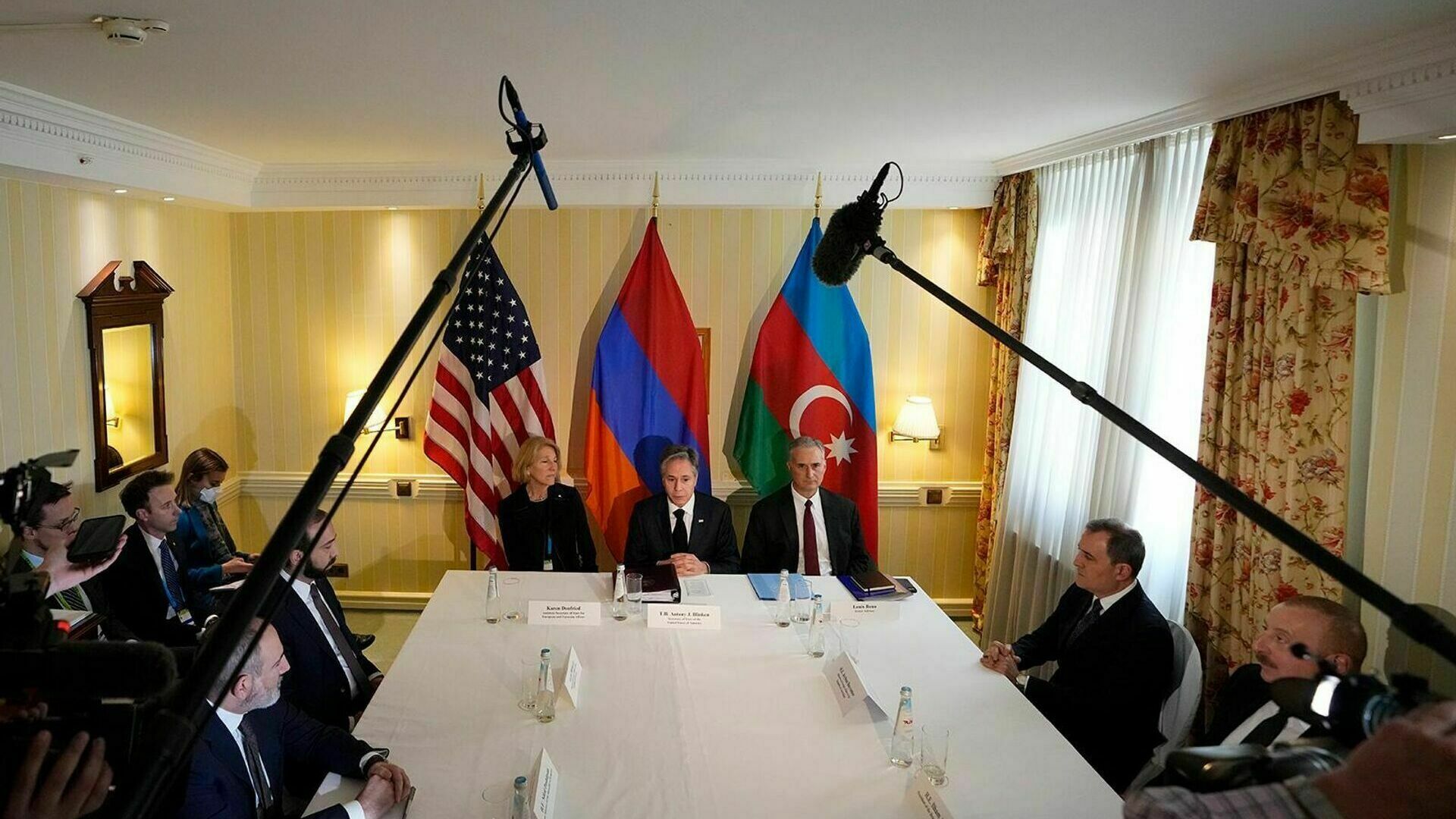Posted 20 февраля 2023, 13:40
Published 20 февраля 2023, 13:40
Modified 20 февраля 2023, 14:12
Updated 20 февраля 2023, 14:12

Playing ahead of the curve: will America seize the initiative from Russia in the Caucasus?
The annual Security Conference, which took place last weekend in Munich, the capital of Bavaria, attracted the attention of the world's leading media and political analysts, since this forum is considered to be a review of ideas that will influence the prospects of the world order. Experts consider it very symbolic that Western leaders are building plans to counter Russian ideas in the city where they were first outlined by Putin himself. Armenian Prime Minister Nikol Pashinyan and Azerbaijani President Ilham Aliyev also met on the sidelines of this event with the participation of US Secretary of State Anthony Blinken, which
Many commentators perceived it as a bid by America and its allies to establish their dominance in the Armenian-Azerbaijani settlement process.
There is a lot of evidence in favor of this conclusion. Firstly, Russia has not participated in the Munich forum for the second year in a row, while its competition with the West for influence in the Caucasus has sharply escalated over the past year. Secondly, Blinken himself did not skimp on promising statements: according to the American Secretary of State, "Azerbaijan and Armenia have a truly historic opportunity to establish lasting peace after more than thirty years of conflict." He also promised Washington's full support for the actions of Baku and Yerevan on this path.
Russian political scientist Sergey Markedonov comments on the situation in his blog:
"Is it worth reducing the problem exclusively to the Cold War-2 format? The United States has become more actively involved in the Armenian-Azerbaijani peace process in the last couple of years, this is a fact. But for those who closely follow the policy of the United States in Eurasia, this is not a discovery. Even in April 2001, when Russian-American relations were not much better than their current state, the US administration initiated negotiations in Key West (Florida). For Washington, cooperation with Azerbaijan is an important direction both in the context of the "energy security of Eurasia" and for building the configuration of the "Greater Middle East" (let's recall the Azerbaijani transit route for American cargo to Afghanistan). Armenia has been and remains an important country in the context of the "values policy", as well as as a possible instrument of pressure on the obstinate Turkey.
Thus, outside of Russia, the Caucasus and Eurasia as a whole are of interest to the United States. At the same time, both Moscow and Washington are not against Baku and Yerevan making peace with each other. The questions are only about the pace, the sequence of steps and who could play the role of a leading mediator. The states would prefer (at least) today there is such a world in the Caucasus where the importance of Russia would not be decisive. However, in any case, we should not forget about the root causes of the conflict. We see that all the efforts of both Russia and the United States have so far been frustrated by the unwillingness of Baku and Yerevan to find mutually beneficial compromises..."